Nigeria is an extraordinary country. Formed by combining 3 Protectorates from the British Colonial rule, located on the Bay of Bight in West Africa, Nigeria is home to over 200m people, combines 3 major tribes and 250 smaller tribes, over 500 languages, immense physical beauty and topography that ranges from the lush tropical forests of the south, the Shebshi Mountains rising over 2,000m between the Taraba and Benue Rivers, and the majestic Sahara desert.
The Niger River snakes over 4,000km through Guinea, Mali, on the Benin border before becoming truly awe-inspiring in Nigeria, emptying eventually into a vast delta (the Niger Delta of course), and subsequently into the Atlantic Ocean. The Niger River drains over 2 million square km of West Africa.
Nigeria gained its independence on Oct 1, 1960, amid tremendous optimism about the future of Nigeria and the future of Africa. The discovery of oil in 1951 was widely viewed as a great boon for Nigeria’s economy and people. However, despite this optimism, the road since independence has been long and difficult. A coup in 1966 took Nigeria from democracy to military dictatorship. A brutal civil war from 1967-70 resulted in the deaths of up to 2 million people.
READ: Nigerian government spends equivalent of 83% of revenue to service debt in 2020
The 1970s gave some economic respite, as the Yom Kippur War of 1973 drove up the price of crude oil dramatically, and the so-called ‘7 Sisters’ (the world’s private international oil company titans) all pitched their tents in Nigeria. GDP per Nigerian was over USD 1,000. The military leader then Gen. Yakubu Gowon quipped “the problem is not money but how to spend it.”
There was massive investment in infrastructure – the so-called cement Armada had over 20 million tonnes of imported cement in the Lagos port at one time. In 1976, Nigeria hosted one of the most lucrative tennis tournaments in the world at the Lagos Lawn Tennis Club, headlined by the remarkable Arthur Ashe, reigning Wimbledon Champion. Unfortunately, the tournament came to an abrupt end on the semi-final day during an Ashe match with an attempted coup.
READ: Nigeria is falling into China’s debt trap
Nigeria by the numbers
1976 perhaps marked the high-water mark for the economy, as oil prices never again attained their 1973 peak (in real terms). Until the mid-1980s, Nigeria’s currency – the Naira – was worth more than the GBP. However, since then, the Naira has continuously devalued – today over 600 Naira to the GBP – a powerful signal of the economic decline of Nigeria.
Overall, since 1966, Nigeria has had 5 successful coups, 3 unsuccessful coups, the horrific civil war, and a return to democracy only in 1999, a democracy that remains very much a work in progress.
Despite the painful post-colonial period, both Nigerians and those from outside the country agree on one thing: Nigeria has enormous potential. In addition to unrivalled natural resources (oil, but also, gas, every mineral known to humankind), enormous quantities of arable land, and scenery that could create many of the world’s great future tourist destinations, the success of Nigeria’s music and Nollywood on the global stage highlight the vibrancy and creativity of her people.
READ: Nigeria spends N29 trillion on recurrent (non-debt) expenditure in last 10 years
However, achieving this immense potential remains elusive and, on many dimensions, Nigeria is an outlier and not in a good way. On a strict GDP basis – using the Purchasing Power Parity approach, at USD 1,075.69 billion Nigeria does not appear to be doing too badly. This PPP GDP per capita of USD 5,363 is ahead of India, and most other African countries.
This seemingly reasonable PPP GDP per capita performance masks extremely worrying official numbers:
- GDP per capita has in fact been declining every year, with GDP growth since 2015 less than population
growth. - Official unemployment statistics from the NBS show 27.1%.
- Nigeria has the most people of any country in absolute poverty, approximately 100m.
- Nigeria has the most children out of school (13.5m United Nations).
- On the Human Development Index (HDI), Nigeria scores very poorly, with 0.539, behind African countries like Ghana (0.611) , Kenya (0.601), Cameroon (0.563).
- Embedded with the HDI, Nigeria has a very low life expectancy of 54.8, compared to India and 69.7 and China at 76.6 years.
- Income inequality is extreme; while over 100m people are in absolute poverty, Nigeria was forecast to be Africa’s largest importer of champagne when oil prices were rising. (It is the second highest importer of champagne in Africa behind South Africa).
- All of this is happening against a background of rapid population growth – estimated to be 3.2% pa by the Nigerian Population Commission. This means Nigeria will be the 3rd most populous nation in the world in 2050, and Lagos is projected to be the world’s most populous city at 40m. The Lancet recently projected that Nigeria will be the world’s second most populous country by 2100, surpassing China this century.
READ: Nigeria, now 2nd most corrupt country in West Africa – Transparency International
And Nigeria continues to be plagued by corruption and poor governance, at least according to the global surveys of such issues.
Transparency International’s 2020 Corruption Transparency Index scored Nigeria 25 out of 100 (higher is better), 149th of 180 countries. In contrast, its English-speaking neighbour in West Africa, Ghana, scored 43/100 with a ranking of 75th. Ivory Coast was also one of the world’s great improvers in the Corruption Perception Index in 2018, moving from 27 to 35/100 (that is, moving from equal to Nigeria to considerably better) and a ranking of 105th.
Despite the centrality of tackling corruption to the current government’s agenda, Nigeria’s score has sadly gone backwards from 28 in 2017 to 25/100 in 2020.
On Governance, the World Bank Group has a long-standing Worldwide Governance Indicators project, which ranks countries on 6 key dimensions: Voice and accountability, Political stability and Absence of Violence/Terrorism, Government Effectiveness, Regulatory Quality, Rule of Law and Control of Corruption.
READ: Hotels in Nigeria are on the verge of collapse
Not surprisingly, Nigeria is not doing very well on these. Specifically, Nigeria fares very poorly on the Political Stability and Absence of Violence/Terrorism and Control of Corruption dimensions. But on almost every dimension, Nigeria does worse than its SSA peers, and what is perhaps more worrying is from 2008-2018, Nigeria has gone backwards on 4 dimensions.
The one dimension where Nigeria performs better than SSA is on Voice and Accountability – reflecting Nigeria’s boisterous NGO, press, and the general public who are increasingly bringing sunlight to Nigeria’s challenges every day.
Both those inside and outside of Nigeria are aware of the challenges in the Northeast of the country related to Boko Haram. Beyond these, we have the increasing number and severity of clashes between pastoralists (Fulani herdsmen) and farmers. This conflict is moving further and further south in Nigeria as climate change means that the Sahara is moving further and further south, increasing pressure on the lifestyle and livelihoods of the Fulanis.
Kidnappings also seem to be on the rise. While in the past, kidnappings might have been primarily concentrated in the South-South, it appears to be moving to become more of a nationwide phenomenon, though as always it is difficult to gather accurate statistics.
Overlaid on the Boko Haram, Fulani herdsman, and kidnapping security concerns is the general level of crime –ranging from petty theft to rape and murder – throughout the country. Of course, again, it is difficult to know whether Nigeria is making progress on any of these security issues. A free press that reports incidents, a vibrant NGO sector that often assists victims and the speed of light of the internet means that we are increasingly aware of insecurity incidents from all these sources.
In 2020, a new movement rose up, End SARS. Extra-judicial killings by security forces – including many by the infamous Special Anti-Robbery Squad – finally brought Nigerians – especially young Nigerians – out on the streets. Both the Federal and many State Governments acknowledged legitimate grievances and a painful and unknown process of examination of these issues has begun.
The telling of history – and the way forward – was made much more difficult by the events of Oct 20, 2020, where security forces and unarmed civilians clashed at the Lekki toll gate. What exactly transpired is disputed by official parties to the events, but there is no question that the path to building trust between the government and its citizens has been made harder.
Beyond all these issues – high levels of poverty, low HDI outcomes, low life expectancy, security challenges, and poor scores on corruption and governance – there is a unique aspect to Nigeria that is critical to understanding how Nigeria functions: the almost complete absence of the state sector.
So far, based on the official numbers, we have painted a pretty bleak picture. Nigeria has the most people in absolute poverty in the world, the most children out of school, faces numerous security challenges, performs very poorly on the official grading of corruption and governance and the public sector simply does not have the resources to do what the public sector is supposed to do according to the orthodoxy.
Add to this that the country seems to be making little progress. Nigeria is a big, messy proto-democracy with numerous cleavages across geography, religion, tribe, language, and it is simply not easy to effect meaningful reforms in institutions or indeed the constitution.
Numerous political rivals spend their energy on how to capture more of the vanishing national cake (Nigeria basically produces the same amount of oil today as when it had 1/3 the population, meaning that the oil rents per person have shrunk by 2/3) rather than advancing the public interests, and the 2 main political parties have no distinctive ideology except to be in power (which is a life or death endeavour because politicians need the power to be able to extract the rents to pay back the costs of getting into power).
When looked at through the lens we have described – official statistics, press headlines about insecurities, global rankings putting Nigeria at the bottom of the table – you would very likely conclude that Nigeria should be a failed state … or that even if not a failed state, it is highly likely to become a failed state in the near future.
This conclusion – as argued by the authors of this book – would in fact be wrong. Every day millions of Nigerians go about their daily business (not in easy circumstances to be sure, but Nigerians are resilient). Nigerians are trying to build a business, earn their living, get an education, find a spouse, raise their children, and – certainly world-class in this dimension – party.
And this is the central question of this book: why is Nigeria not a failed state?
Our hypothesis – which the rest of this book tries to support – is that Nigeria is not a failed state because Nigerians have self-organised in the absence of a functioning public sector. That is, Nigerians organise their own security, their own power, their own education, their own healthcare, their own infrastructure, their own future. And they self-organise at every scale – individual, group, State, National – and in every sphere of human life.
Check out our website: https://selforganisingnaija.org/
Partner – Financial Services Leader and Chief Economist PwC, West Africa Dr. Andrew S. Nevin, PhD is one of PwC’s leading global thinkers, working at the complex intersection of economics, strategy, capital markets, and investment. He has over 34 years of professional experience as an entrepreneur, private equity investor, line manager, economist, and strategy consultant and is his professional career has previously lived in Asia, North America, and Europe. He has been based in Lagos, Nigeria (the world’s 7th most populous country) since early 2012.









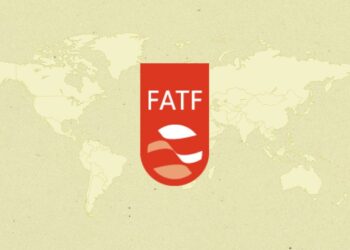
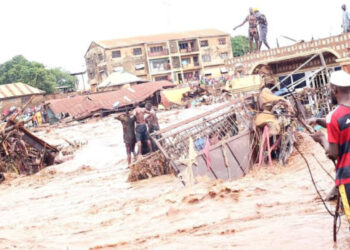
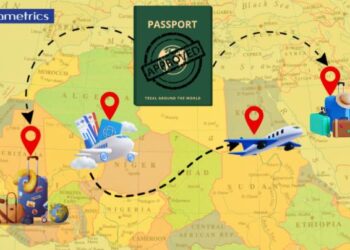
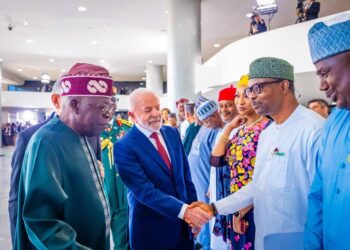
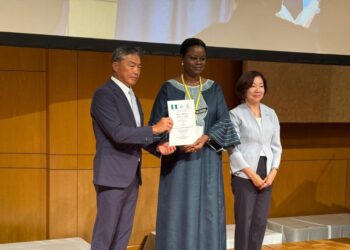









Encouraging piece. But in my opinion, no matter how resilient Nigerians may be, if things don’t change for the better soon, then the worst would be inevitable – perhaps at a time that is unexpected. You cannot be planting poor seeds and expect a rich harvest year in year out, no matter how fertile the soil may be.